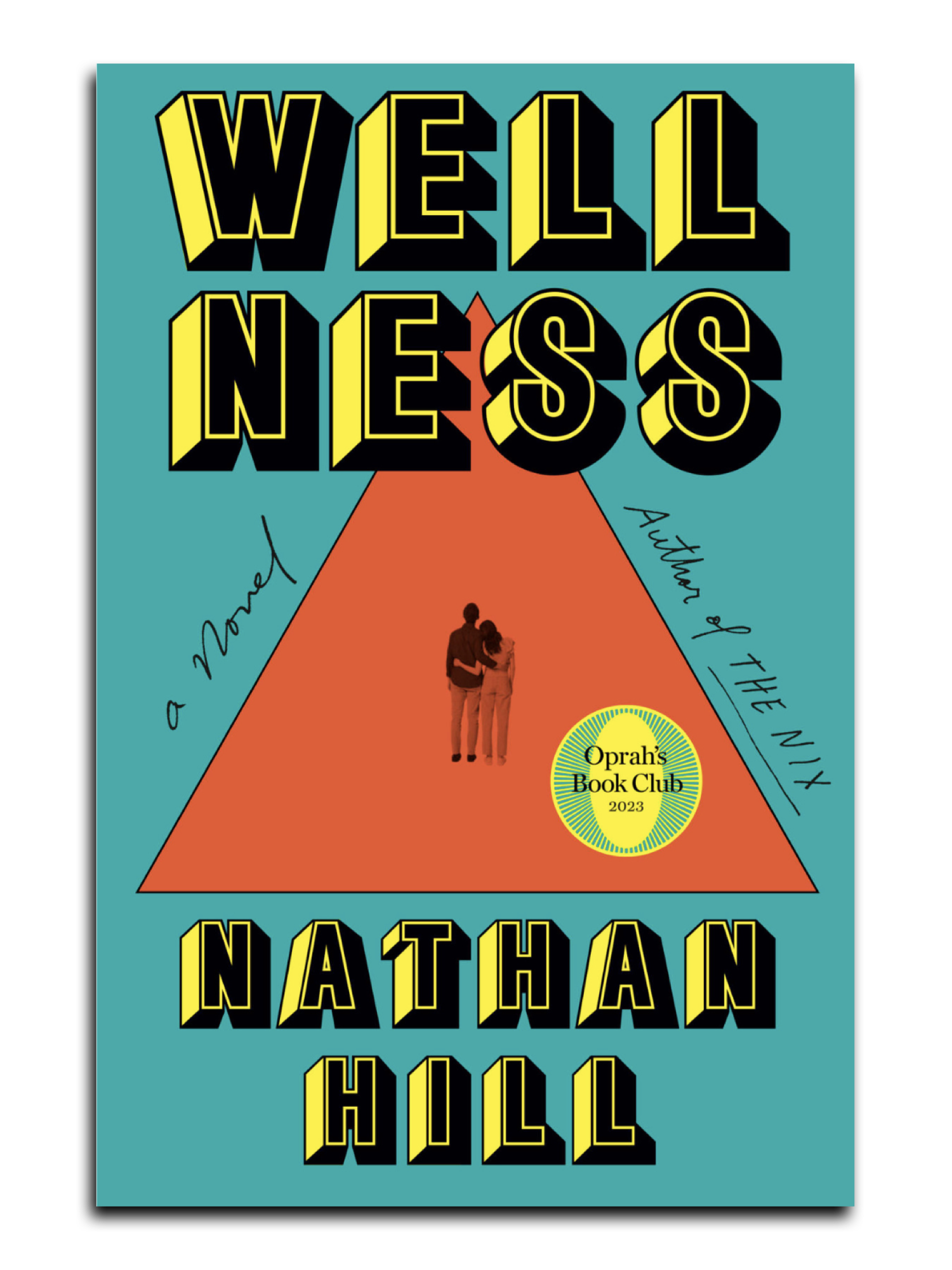Wellness by Nathan Hill
Following a deliciously drawn-out, meet-cute in early 1990s Chicago, Jack and Elizabeth eagerly immerse themselves in the underground art and growing hipster scene. In each other they see exactly what they feel they've been looking for all along. Fast forward to 2015 and the pair, now married with a young son, no longer feel like that indomitable, single entity as they struggle to navigate middle age, parenthood, and life in the Information Age.
Do you believe in love at first sight? The beginning of this lengthy novel had me hooked. I fell immediately for the intimacy, the discovery, and the joy of this new love with Jack and Elizabeth. Experiencing Hill's two main characters meet felt like watching the large animal-shaped balloons in the Macy's Thanksgiving Day Parade: they were delightfully larger than life, tangible yet out of reach, and I eagerly followed their paths.
The context and story. As young adults, Jack and Elizabeth are full of life. Jack's artistic endeavors and bashful nature contrast with his vulnerability in art. Elizabeth, with her logical mind, provides balance — they are knowable and embody abstract ideas like art, psychology, and progress. They were going to do things differently than their parents, and you believe them.
The ritual, metaphor, and beliefs. Throughout the remainder of the book, inserted among the present-day dissatisfied and unsettled versions of Jack and Elizabeth, we are given flashbacks to various moments in both Jack's and Elizabeth's childhoods, in addition to various other aspects that reveal what was previously (and intentionally) hidden about their young adulthoods. Also, Hill often gives over to large swaths of lecturing to explain various studies, the way placebos work, and the logic behind algorithms. There's even a considerable bibliography in the back, taking into account that this is fiction, where he cites his sources — for what intention, remains to be seen.
Biologic theater. As much as I was drawn to his two main characters at the beginning, as it continued I noticed a strong conflict within the book itself. The characters, initially vibrant, gradually felt more like plot devices. You can practically hear the author's workings clicking away behind the secret door of which you're now suddenly aware. Hill's relationship with the reader became interesting as the pages turned, and I started to sense a Svengali was lurking in the shadows.
The growing communication gap between middle-aged Jack and Elizabeth became frustrating. I realize that's the point, but it began to feel like Hill was trying to manipulate the reader rather than create true tension, and it expands to the point of ripping the bubble of believability.
Benjamin Quince, a sort of tertiary character who pops in and out of the narrative, clearly at the whim of the author rather than through organic storylines, serves as some sermonizing deus ex machina for aesthetics or finances, and between Quince and the bits with a fully removed narrator explaining science and studies, this has some strong mansplaining undertones. It was as if I'd suddenly wandered into a conference about whatever topic Hill needed to insert to feel his story was bolstered by the reader being properly informed.
And suddenly it hit me. The opening salvo, the introduction to Elizabeth and Jack and their lovely, intoxicating initial meeting, is gorgeously written. And, what if that's on purpose? As I read, I started to wonder…what if this whole thing is an example of a placebo experiment? Interesting enough that he named the book after the very facility that Elizabeth transforms into a placebo factory.
"Elizabeth called this phenomenon the "meaning effect," a term she much preferred to "placebo effect." Because to say that these effects arose from placebo implied that they arose from nothing—for that’s what placebo traditionally was, an inert substance, literally, and intentionally useless—when in fact the placebo effect was solicited by the strong sense of significance and substance surrounding the placebo itself: the context, story, ritual, metaphor, and beliefs associated with the placebo. The placebo effect was, in fact, the brain's response to finding meaning."
Elizabeth, always heavily involved in psychology, has long worked with Dr. Sanborne and placebo studies at a front-facing facility named Wellness that appears to be some type of medical center in order to properly execute said placebo studies. After Dr. Sanborne retires, Elizabeth is given the reins and extends the arm beyond simple placebo studies into executing known placebo ideas into a questionably ethical business including basically handling marketing for interested and high-paying clients.
"What Wellness would be doing was not so different: creating fictive experiences that produced real physical and psychological responses. It would be biologic theater."
Meanwhile, middle-aged Jack is now a professor with very little interest in his own art — a part of him that has become stagnant and predictable. Elizabeth's career and overly analytical mind is extraordinarily important to the story, whereas Jack could've had almost any career. As more of Jack's backstory is revealed, including a rather important character who isn't even introduced until about 65% in, Jack's smudginess gets amplified and the reader is meant to feel inclined towards believing in nurture over nature. As more of Elizabeth's story gets revealed, the more the reader is meant to believe in the possibility of destiny, fate, or inevitability. Both aspects are antithetical to the very characters that project these ideas.
And all that arguing and presenting and posturing is without purpose, because so much of Jack's and Elizabeth's lives feel entirely dictated by misunderstandings, miscommunications, or coincidences. Even Hill's ending only goes so far in quickly handing out nicely packaged parting gifts that have followed unearned revelations by the two characters. In the end, we fill in the story with the desired effect. After all, "the placebo effect was, in fact, the brain's response to finding meaning."

